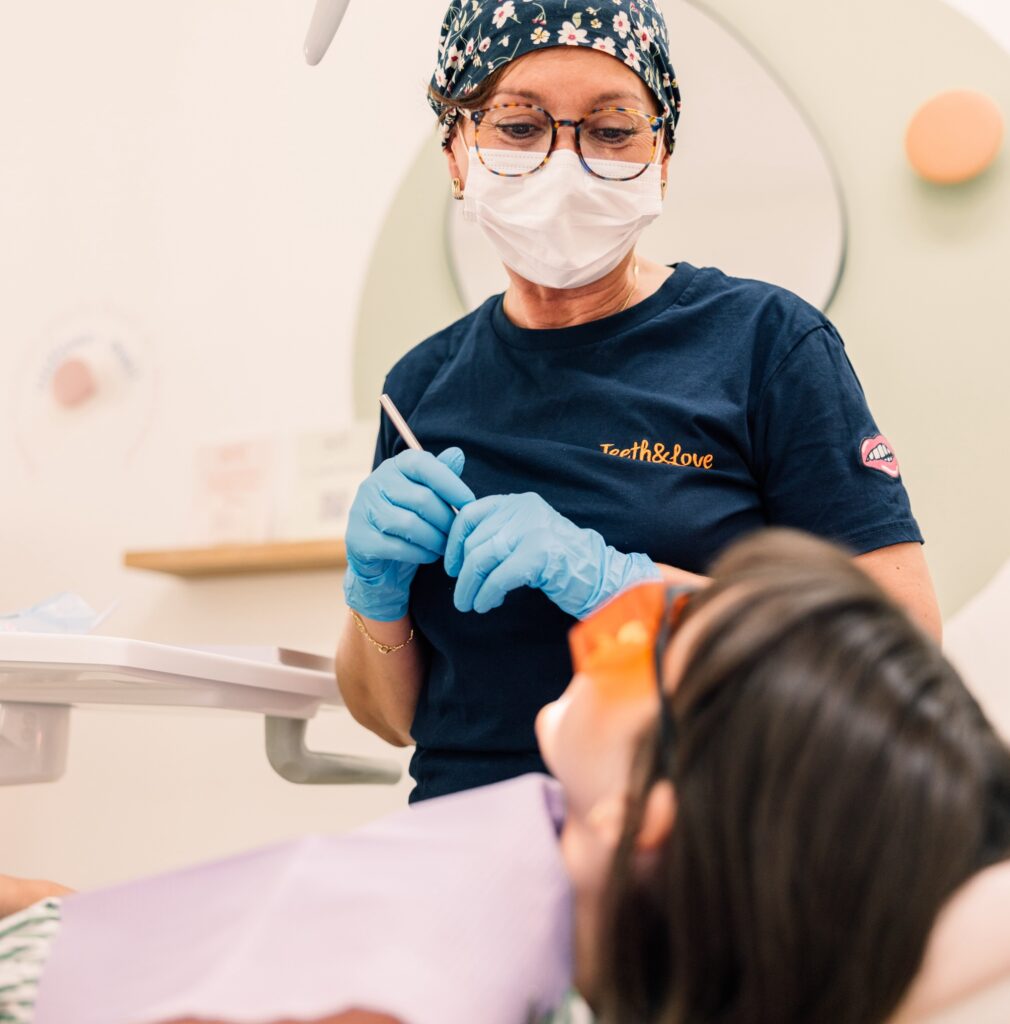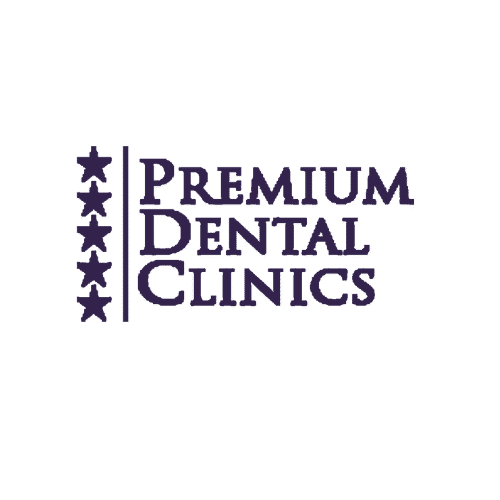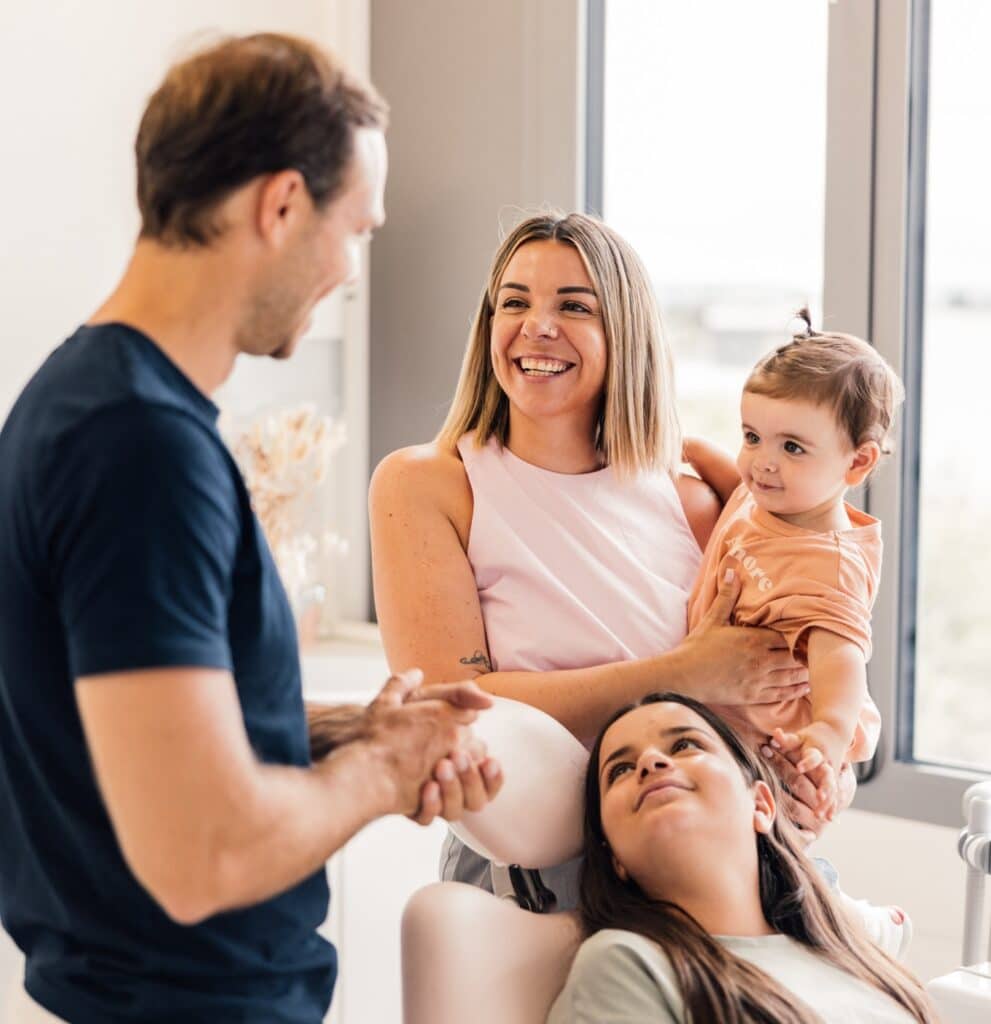Treatment of cavities
It’s up to us to be creative and make this treatment fun and comfortable for your child!
Because cavities are not inevitable, and it’s our duty to advise your child so that they don’t get cavities again! At CHD, our priority is to ensure that every child we treat grows up with a healthy mouth and receives the oral health education they need to maintain good dental hygiene and prevent disease throughout their lives.
And the bonus? That we’ll be able to help them see dentistry in a different, friendlier and more relaxed light!
Treatment of cavities for your children at CHD
With children, there’s no need to rush; patience is always key.
Getting to know the instruments, listening to them and treating them gently will ensure that your child has a positive experience that will give him or her peace of mind for future appointments… and for the rest of his or her life!
Discover this treatment in video

Rates
| Caries treatment for children | from €90 to €250 |
Exact quotation before treatment.
*You can pay in installments.
Let’s get involved in preventing child abuse.
5% of our fees for all check-ups are donated to Patouch, the Association for the Prevention of Child Abuse in French-speaking Switzerland.
Fair & transparent prices
We strive to maintain unbeatable value for money: reasonable prices, which have not changed since 2016, for quality of care that has earned us numerous awards:




Advice
The session ends with tailor-made advice from the dentist on good oral and dental practice for the child: if possible, keep your hands out of your mouth!
Every child is different, particularly whether or not their parents are present. Some require more time than others, but there is one constant: as soon as we explain and show the child how the treatment is carried out in a relaxed manner, the child feels confident and it becomes possible to move forward with the treatment. It sounds simple when you put it like that, but in reality it takes a lot of experience!
Dr Thiery, Dentist, CHD Clinic, Lausanne.
Next appointment
The dentist will organise a personalised check-up and scaling schedule for your child, so that he or she can maintain good oral health and achieve the 0-decay objective, depending on the level of caries, the extent to which he or she is involved in dental hygiene and the alignment of his or her teeth.
Our dental clinics
Find out more about cavities (children)
If your child has a cavity, there are a number of things that can alert you:
Pain, a hole or discolouration in a tooth;
Food residue stuck between the teeth after meals;
Your child has bad breath;
Bleeding from the teeth or gums, etc.
BOOK an appointment with a dentist as soon as possible to carry out an oral check-up and, if necessary, treat the cavity as soon as possible.
Children’s teeth are more fragile and more likely to develop cavities. That’s why it’s essential to practise good oral hygiene from the time they start teething (around 6 months), and to eat a balanced diet that’s not too rich in sugars.
It’s also important not to neglect appointments with the dentist and hygienist, which are recommended from the age of 3.
Generally speaking, putting the tooth to sleep is all that’s needed to treat your child’s decayed tooth and rebuild it. However, if your child is very anxious, at CHD we can administer conscious sedation by inhalation if you wish.
This is the most widely used technique for complex treatments in younger patients. It is very effective in relaxing your child and allowing us to treat him or her with complete peace of mind.
In the most complex cases, and when the prognosis for the child’s permanent teeth or jaw growth is at stake, it is even possible to administer a general anaesthetic to treat your child in a single session.
As well as causing increasingly acute pain, untreated decay can lead to infectious complications: in the baby teeth (a dental abscess, for example), then in the permanent teeth, which have not even come through yet and will need to be treated, but also in the joints, heart or even lungs.
An untreated decayed tooth will continue to decay, eventually leading to the need to extract it completely. It will then have to be replaced with a dental implant, for example.